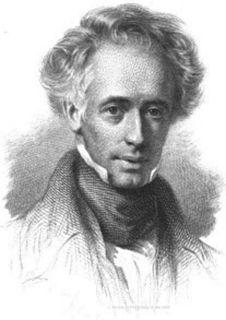A Quote by Yann Martel
Words of divine consciousness: moral exaltation; lasting feelings of elevation, elation, joy; a quickening of the moral sense, which strikes one as more important than an intellectual understanding of things; an alignment of the universe along moral lines, not intellectual ones; a realization that the founding principle of existence is what we call love, which works itself out sometimes not clearly, not cleanly, not immediately, nonetheless ineluctably.
Quote Topics
Alignment
Along
Call
Clearly
Consciousness
Divine
Elation
Elevation
Exaltation
Existence
Feelings
Founding
Immediately
Important
Intellectual
Itself
Joy
Lasting
Lines
Love
Moral
More
Nonetheless
Out
Principle
Quickening
Realization
Sense
Sometimes
Strikes
Than
Things
Understanding
Universe
Which
Words
Works
Related Quotes
The objections to religion are of two sorts - intellectual and moral. The intellectual objection is that there is no reason to suppose any religion true; the moral objection is that religious precepts date from a time when men were more cruel than they are and therefore tend to perpetuate inhumanities which the moral conscience of the age would otherwise outgrow.
Divine Providence is connected with Divine intellectual influence, and the same beings which are benefited by the latter so as to become intellectual, and to comprehend things comprehensible to rational beings, are also under the control of Divine Providence, which examines all their deeds with a view of rewarding or punishing them. ...the method of which our mind is incapable of understanding.
Men have gone on to build up vast intellectual schemes, philosophies, and theologies, to prove that ideals are not real as ideals but as antecedently existing actualities. They have failed to see that in converting moral realities into matters of intellectual assent they have evinced lack of moral faith.
... these great improvements of modern times are blessings or curses on us, just in the same ratio as the mental, moral, and religious rule over the animal; or the animal propensities of our nature predominate over the intellectual and moral. The spider elaborates poison from the same flower, in which the bee finds materials out of which she manufactures honey.
Poverty is a bitter thing; but it is not as bitter as the existence of restless vacuity and physical, moral, and intellectual flabbiness, to which those doom themselves who elect to spend all their years in that vainest of all vain pursuits-the pursuit of mere pleasure as a sufficient end in itself.
While some animals exhibit individual powers in higher perfection, man stands for their superior, not only in combining in his own body all the senses and faculties which they possess, but in being endowed with moral and intellectual powers which are denied to them, and which at once place him at the head of the living creation, and constitute him a moral, religious, intelligent, and responsible being.
Let's just call things what they are. When a man's love of finery clouds his moral judgment, that is vanity. When he lets a demanding palate make his moral choices, that is gluttony. When he ascribes the divine will to his own whims, that is pride. And when he gets angry at being reminded of animal suffering that his own daily choices might help avoid, that is moral cowardice.


































